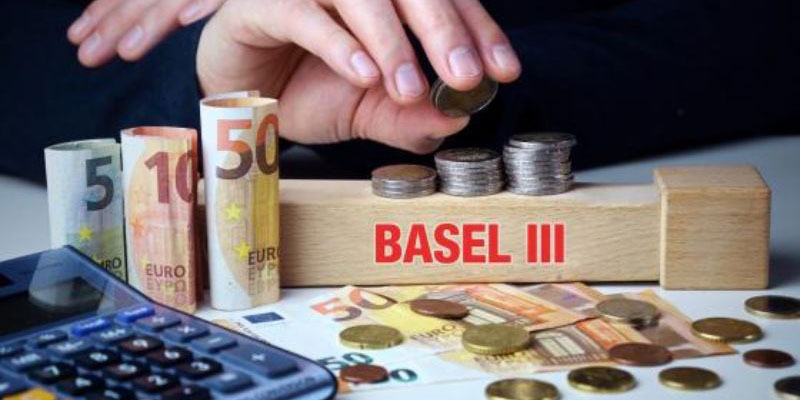Affirm vs. Afterpay
May 26, 2025 By Kelly Walker
The concept of buy now, pay later (BNPL) has recently grown in popularity. People increasingly turn to BNPL solutions as an alternative to credit cards and traditional loans. As more businesses embrace software-enabled financing options, two major players have emerged: Affirm and Afterpay.
While they offer flexible payment channels for customers, each platform serves to decide its unique set of advantages - so how do you decide which one is right for you? We'll explore the differences between these two popular payment providers and help you make an informed decision about which one best suits your financial needs.
Affirm what it offers customers

Affirm is a financial technology company that provides customers with installment financing solutions. With Affirm, customers can make purchases online and repay them over time in fixed monthly installments.
Affirm also offers a variety of options to fit different payment needs, such as 0% APR or split-payment options. Additionally, Affirm partners with merchants to allow customers to complete checkout faster and with more payment options.
Afterpay and what does it offer customers

Afterpay is a BNPL provider that allows customers to shop now and pay later without interest or fees. Unlike Affirm, which requires the customer to be approved for financing before purchasing, Afterpay allows customers to shop and pay for their purchases over four equal installments spread out every two weeks.
Benefits of using Affirm for purchases
- Easy application process: Affirm's online application process is simple and quick, allowing customers to apply for financing without leaving the checkout page.
- Flexible payment options: Customers can choose from multiple plans depending on their needs.
- Real-time decisions: Affirm provides instant approval decisions, so customers know within seconds if they are approved for financing.
- Increased sales conversions: With Affirm, customers can purchase now and pay later - increasing the likelihood of converting a sale.
- Simple repayment structure: Customers can choose between paying in full or spreading their payments over time.
- Transparent pricing: Affirm clearly outlines total interest costs upfront, so customers know exactly what they're paying before completing their purchase.
Benefits of using Afterpay for purchases
- No hidden fees or interest charges: Afterpay does not charge any additional fees and has no hidden costs.
- Quick setup process: Customers can sign up and start with Afterpay without filling out lengthy forms.
- Secure payments: Afterpay uses tokenized, encrypted payment information for added security.
- Instant approval: Customers are approved for purchases instantly, allowing them to shop now and pay later.
- Flexible purchase options: With Afterpay, customers can choose from various payment plans to fit their budget.
- Convenient reminders: Afterpay sends automatic reminders when payments are due.
- Peace of mind: All purchases made with Afterpay are backed by an extended returns policy.
Making the right decision between Affirm and Afterpay depends on your financial needs and goals. Both solutions offer unique advantages that make them attractive to different customers - so it's important to weigh the pros and cons of each before making a decision.
Ultimately, both Affirm and Afterpay provide customers with more flexible payment solutions that enable them to shop now and pay later. By understanding the differences between these two popular BNPL providers, you can choose which is best for you.
Drawbacks of using Affirm
- High APR rates: Affirm offers 0% APR on some purchases, but its interest rates can be as high as 30% for many others.
- Limited merchants: Affirm currently partners with a limited selection of merchants and brands.
- Late payment fees: If you miss payments or are late on payments, Affirm may charge late fees
- Limited payment options: Affirm only allows customers to pay with debit or credit cards - no other payment methods are available.
- High minimum purchase amounts: Affirm requires purchases of at least $50 for customers who do not qualify for 0% APR financing. This can be prohibitively high for some customers.
Drawbacks of using Afterpay
- Late payment fees: If you miss a payment or are late on payments, Afterpay will charge a late fee.
- Limited merchants: Afterpay currently partners with a limited selection of merchants and brands.
- Maximum purchase amount: Purchases must be under $1000.
- Limited payment options: Afterpay only allows customers to pay with debit or credit cards.
- Non-refundable deposits: If you return an item purchased with Afterpay, the funds will not be refunded back to your account - they must be used as a store credit
Comparing the affordability of different payment options with Affirm & Afterpay
Affirm and Afterpay offer financing solutions enabling customers to purchase now and pay later. But how does the affordability of each option compare?
Affirm: Affirm offers interest rates ranging from 0% APR to 30%, depending on your creditworthiness. There are no additional fees or hidden costs associated with using Affirm, but it does have a minimum purchase amount of $50 for customers who don’t qualify for 0% APR financing.
Afterpay: Afterpay has no additional fees or interest charges but requires purchases under $1000. Late payments will incur a fee, and all returns must be used as store credit only - they are non-refundable.
Affirm, and Afterpay offers customers a convenient way to make purchases now and pay later, but the affordability of each option varies. When considering which BNPL provider is right, evaluating your financial goals and needs is important. You can choose the best solution by understanding the differences between Affirm and Afterpay.
FAQS
Does Affirm hurt your credit?
No, Affirm does not hurt your credit score. When you apply for financing with Affirm, they will do a "soft check" of your credit to ensure you are eligible for financing and assess an appropriate rate - this will not affect your credit score.
Can I use Afterpay without a debit or credit card?
No, Afterpay only allows customers to pay with debit or credit cards.
Why is Affirm denying me?
Affirm reserves the right to deny financing applications for any reason. Some of the most common reasons that Affirm may reject an application include the following:
- Insufficient credit history
- Low credit score
- Too many recent inquiries
- Recent delinquencies
It’s important to remember that these are only some reasons Affirm may deny an application - other factors could be at play. If you’re unsure why Affirm rejected your application, it’s best to contact their support team directly for assistance.
Conclusion
Affirm, and Afterpay are excellent options for purchasing products quickly without breaking the bank. Not only do they offer affordable rates, but they also make it easy to pay back in installments that won’t burden your finances unnecessarily. Whether you choose to use Affirm or Afterpay depends greatly on your situation and needs; both companies provide a safe and secure way for consumers to buy now and pay later.
On this page
Affirm what it offers customers Afterpay and what does it offer customers Benefits of using Affirm for purchases Benefits of using Afterpay for purchases Drawbacks of using Affirm Drawbacks of using Afterpay Comparing the affordability of different payment options with Affirm & Afterpay FAQS Does Affirm hurt your credit? Can I use Afterpay without a debit or credit card? Why is Affirm denying me? Conclusion
What is a Credit Limit

Teaching your kids about financial literacy doesn't have to be boring. Here are some creative ways to use games to make learning fun for your children.

Impact of Basel III rules on bank investment

Difference between 457 Plan and 403(b) Plan

What is Growth Stocks

10 Most Prestigious Law Firms in the World

How the Internet Changed Investing?

10 Best Small Personal Loan Options for 2020

All About Patent Holders

Affirm vs. Afterpay

What Is the Maximum Conforming Loan Amount?
